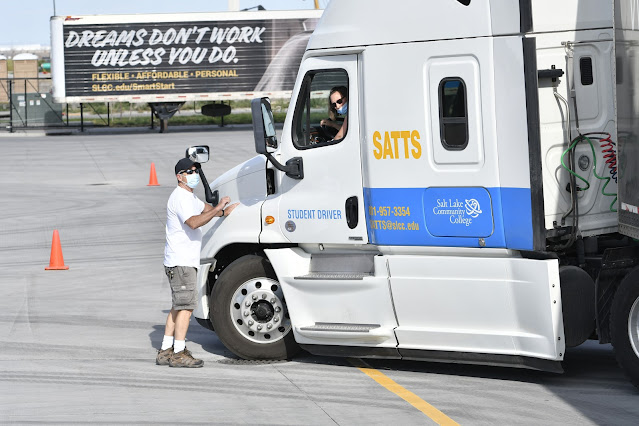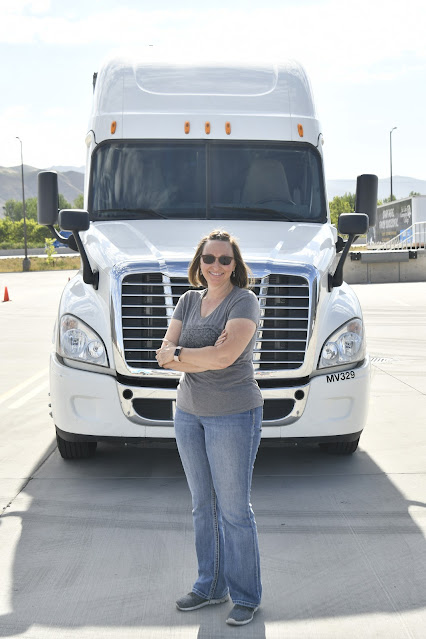Debbie Neel had her Class A CDL license to operate an 18-wheel truck and was ready to hit the road, but the certificate she had earned from a private school that abruptly closed amid a scandal was suddenly worthless in her job search. And when the COVID-19 pandemic put the brakes on truck driving schools around the country, it looked like she’d have to wait even longer.
Then, just before summer, Utah moved to a lower-risk level that allowed SLCC to reopen some of its labs on a limited basis, including the truck driving lab at SLCC’s Westpointe Workforce Training & Education Center. Debbie jumped at the chance to enroll in SLCC’s six-week program that puts students to work right away driving trucks.
“I’ve been in the office all of my life,” says Debbie, a former office manager who lives in Draper with her husband, who already drives truck for a living. They will be team drivers for the same company. “It was extremely intimidating at first. It took him a long time to talk me into this. I think it will be good. I’ll be doubling my salary."

Graduates of SLCC’s program starting out can earn in the neighborhood of $60,000 to $80,000 per year and even higher within about a year, according to Bill Tovar, SLCC’s program coordinator for its CDL license program under the School of Applied Technology and Technical Specialties. The program ends in earning a certificate that private companies require, along with a state CDL license, to begin work. “There are great jobs out there,” Bill says. “We are placing everyone who comes through the program into jobs.” The market for truck drivers, considered essential workers during the pandemic, remains steady but with an expected increase in demand within the next few months, Bill adds.
The trucks used for training at SLCC during the pandemic are wiped down with disinfectant at the beginning and end of each day, as well as between each student. Instead of four students per truck, Bill says they have limited time behind the wheel to two students at a time. “They’re getting twice the training they normally would, which is a good thing,” he says.
Wearing a mask with glasses that tend to fog up, Debbie notes, has been a bit cumbersome, but she worked it out and is expected to graduate this week. “I’ve been hanging for almost a year now,” she says. “I need to get on the road. My husband likes where he’s at – it’s a great company. For me to be able to drive with him, this is what I had to do. And we wanted to get it done as soon as possible.”
As for women becoming more commonplace in the formerly male-dominated world of truck driving, Debbie and fellow student Kourtney Kienbaum say they’re comfortable with their new roles. “I think women finally realized we can do it too,” Kourtney says. “We have families to support. If you can perform and to the job, the money is there.” Bill says he currently has a waiting list for people who want to enroll in SLCC’s truck driving program.



Comments
Post a Comment